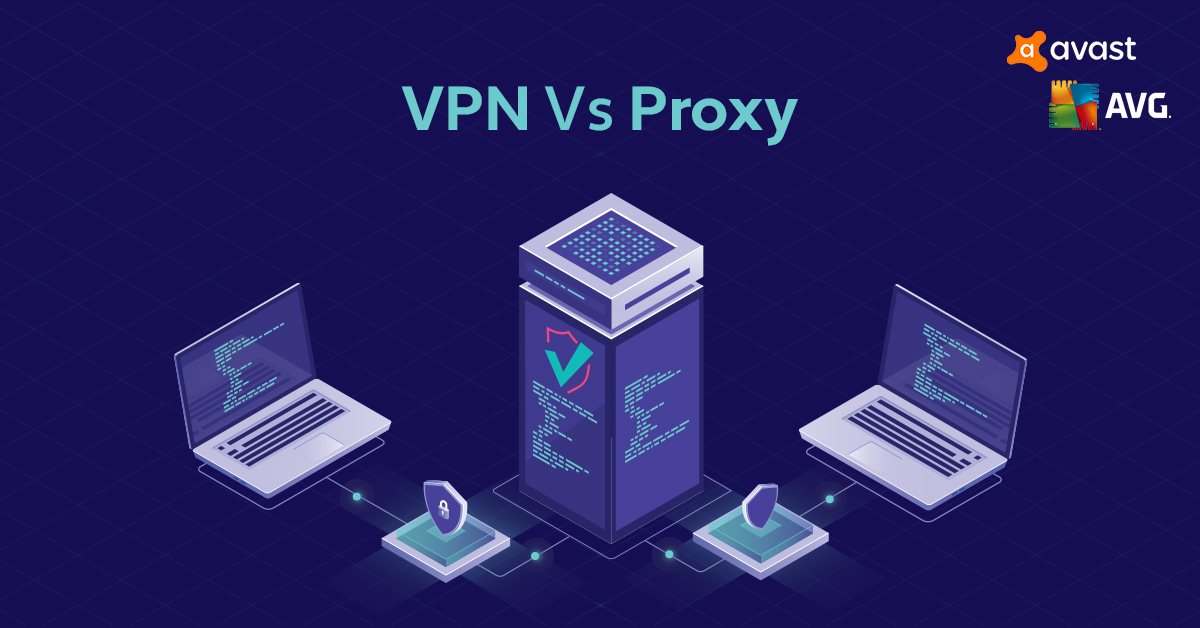The growing trend of digitalization and our increasing reliance on the internet and technology prompt a debate on data security and privacy. Is browsing the internet without protection safe anymore? With the number of cyberattacks on individuals and firms rising at a steadfast rate, it’s important to take precautions to make sure we’re safe online.
VPNs and proxies are popular ways to keep ourselves anonymous on the internet. We break down the differences between them to understand which one is right for you.
What Is a VPN?
A virtual private network or VPN is a security measure that reroutes all your internet traffic through a remote server. This protects you from hackers, government surveillance, as well as enables you to access geo-restricted content. Moreover, your Internet Service Provider (ISP) can’t see your online activity. This makes you invisible online and lets you make your way around the internet without leaving personally identifiable traces.
What Is a Proxy?
Proxies work similarly to VPNs and can be great if you only intend to access geo-restricted content such as streaming sites. However, proxies don’t make much of a case for themselves when it comes to security as they operate at the application level and do not route all system traffic through the remote server. This can leave you exposed to online hackers and surveillance operations.
The Main Difference Between VPN and Proxy
While there are many similarities between VPNs and proxies, one of the most important distinguishing factors is that of security. VPNs offer a robust all-round secure environment by operating at the operating system level. Proxies, on the other hand, do nothing to protect you.
This seemingly simple difference between the two can have implications on:
-
Security
There is no debate about how VPNs are way more secure than proxies. VPNs ensure that you remain completely anonymous on the internet by masking your real IP address with that of a remote server. Proxies are sub-standard to VPNs as far as security is concerned.
-
Privacy
VPNs and proxies both keep you anonymous online. However, VPNs are superior in this regard because all the traffic from your computer is rerouted. Therefore, there are no loose ends that can be used to trace your identity. Proxies only hide the IP address in packets of data sent and received from the app it was configured on, allowing other internet traffic from your device to remain exposed and vulnerable.
-
Cookies
With people waking up to the relevance of cookies and their implications on our privacy, it’s important to understand how they work with VPNs and proxies. Cookies are small files that are stored on your computer to help websites track your browsing activity. These files collect user data to drive targeted advertising campaigns all over the internet. Both VPNs and proxies allow you to stay safe from fingerprinting and other methods of device identification that advertisers use to serve ads.
-
Cost
One of the major differences between VPNs and proxies is their price point. Most VPNs are paid services, while many proxies are free and accessible to anyone. However, tread with caution when using public proxies, as these could be used to mine your data. Using a premium VPN service is the best bang for your buck and lets you rest easy knowing your data is not compromised online.
-
Connection Speed
Proxies are typically public and free, putting a heavy load and stress on the server and causing connections to be slow and to drop often. A good VPN, on the other hand, prioritizes customer experience and ensures that connections to a server of choice are always stable. VPNs offer the best possible performance at all times and are the best option in this regard.
Proxy Server Vs VPN: Which Is Right for You?
After having gone through all the different nuances and aspects that set VPNs apart from proxy servers, it boils down to the question that matters the most – which of the two is ideal for you?
The answer is awfully simple – a good VPN is the best choice overall, offering you access to geo-restricted content as well as state-of-the-art security and anonymity online. Proxies allow you to access certain geo-restricted content but offer no protection or privacy features. Make sure to choose a quality VPN provider such as HMA VPN that has a transparent policy about how they treat your data. Be wary of free services that offer VPNs at no cost and mine your data as you use their services.
Proxy Vs VPN FAQs
Here are some frequently asked questions on VPNs vs. Proxies:
Can I use VPN and Proxy together?
While nothing prevents you from using a proxy in conjunction with a VPN, we strongly advise against it because it undermines the security offered by your VPN by connecting to another remote server. This can present vulnerabilities that hackers and other malicious persons can exploit to trace data back to you.
Which is faster VPN or Proxy?
VPNs are typically much faster than proxies and have drastically lower dropped connections. This is because VPNs have far fewer users connected to each server when compared to public, unsecured proxies that are accessible to everyone.

